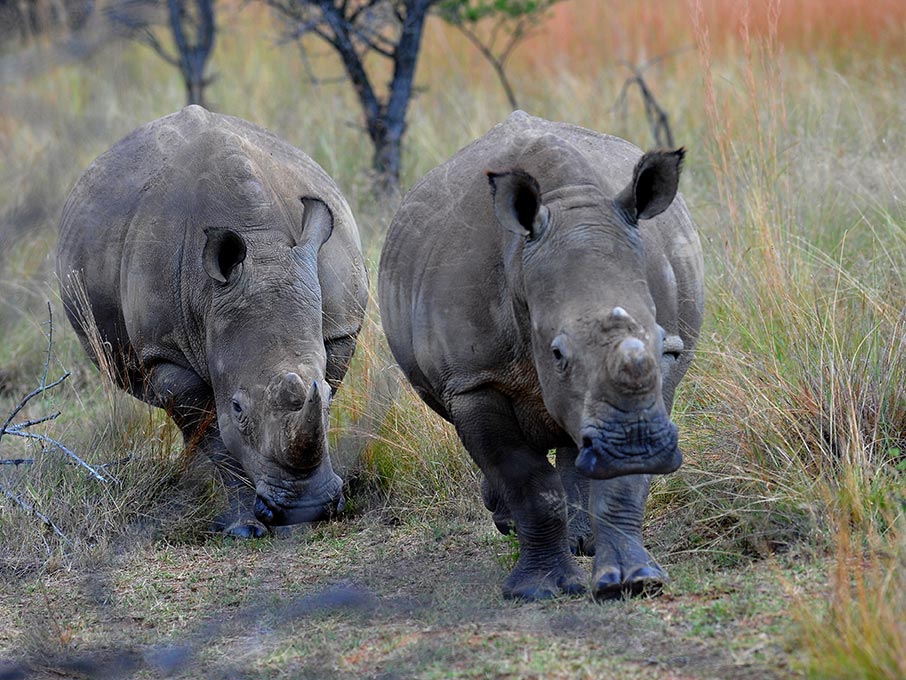South Africa court overturns ban on rhino horn trade
'I would just hope that the world understands that if I don’t sell rhino, my whole rhino herd would be dead within the next ten years'

Trading rhino horns domestically is now legal in South Africa after a judge overturned a ban first enforced in 2009.
Judge Francis Legodi lifted the moratorium at the High Court after saying the government had not followed the process of public consultation before imposing it.
According to news site The Citizen, Judge Francis Legodi said the moratorium was “set aside for substantial non-compliance with consultative and participatory process by the members of sections 99 and 100 of NEMBA (The National Environmental Management: Biodiversity Act)”.
Two of South Africa’s largest rhino farmers, John Hume and Johan Kruger, sought the application to legalise trading in order to cover the costs of protecting the animal.
Following the hearing, Mr Hume told The Citizen: “This is a momentous judgment. I would just hope that the world understands that if I don’t sell rhino, my whole rhino herd would be dead within the next ten years.”
During the hearing, Judge Legodi noted that poaching had soared since the ban was imposed.
Demand for rhino horn is high in both China and Vietnam. In 2009, 122 rhinos were poached in South Africa, but last year, the figure was 1,212.
Cathy Dean, director of Save the Rhino International, did not believe that poaching had increased as a direct response to the ban.
She told The Independent that the demand had always existed and needed to be tackled.
“If continued leakage from a legal domestic horn trade is still going to China and Vietnam, it will be coming from multiple sources [now that the ban has been lifted]… and it will continue to stoke demand in [those countries]."
“There will be more avenues of selling illegally into the user countries.”
It is not yet clear whether the government will appeal the decision.
Additional reporting by agencies
Join our commenting forum
Join thought-provoking conversations, follow other Independent readers and see their replies
Comments